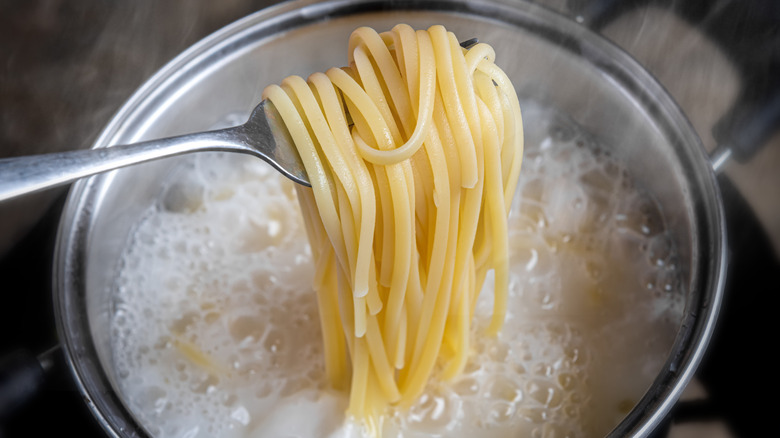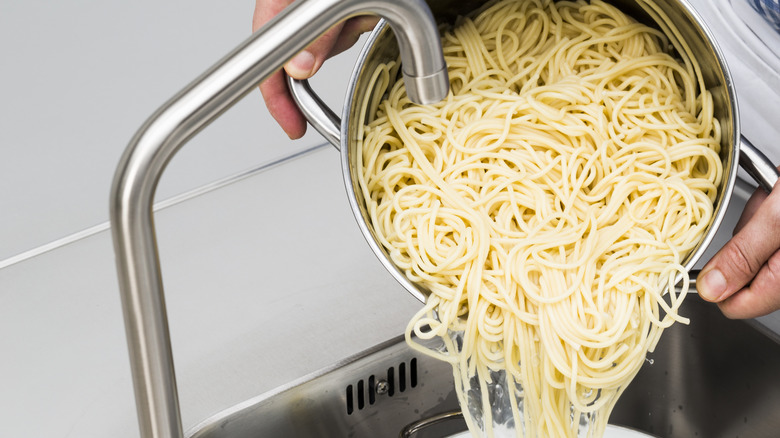Why Some Cooked Noodles Actually Benefit From Getting A Good Rinse
To rinse or not to rinse, that is the question. At least when it comes to pasta, anyway. It's a fundamental teaching of Pasta 101 — once the noodles are cooked, you don't rinse them. Boiling noodles in water pulls the natural starch out, releasing it into the water. The process leaves them coated with starch, which helps the noodles stick to whatever sauce you marry them with as you create your final dish. Rinsing them after draining them removes that useful starch, leaving you with a slippery mess of naked noodles. This is especially important when you are using ridged pastas like radiatore or fusilli and want the sauce to catch in the pasta's grooves.
In fact, some chefs even save some of the cooking water to add to their sauce to help the noodles and sauce mesh even better. Imagine putting in all the work to create the perfect error-free lasagna, only to have your layers slipping and sliding around while you're trying to serve them because you rinsed your noodles and they won't stick to the other layers. Okay, so this wouldn't exactly be catastrophic, but it would certainly put a dent in your street cred as a cook who knows what's up with pasta.
However, on the other hand, rules are made to be broken. Contrary to the popular belief that you should never rinse pasta, there are times when you should actually do just that. As it turns out, rinsing is crucial, depending on the type of noodle.
When the occasion calls for it, rinse away
Rinsing pasta in cold water stops the cooking process dead in its tracks, allowing you to use those noodles right away. In other circumstances, the noodles themselves are simply too delicate to leave unrinsed. Such is the case when you are trying to get a perfect cook on delicate vermicelli noodles, for instance. These particular noodles are so fine and thin that clumping will be a huge problem if you don't rinse them right away. Quickly running some cold water over them will keep the noodles nicely slippery and separated so that you don't end up with a big pile of pasta mush.
Rinsing can also be a big help when you're short on time and need to throw a meal together in a pinch or are working on a dish that you'll be serving cold, like an over-the-top BLT pasta salad where you want the noodles nice and cool before you assemble everything together and serve. But there are other, more essential occasions that you should definitely rinse your noodles once they're done cooking.
When you're cooking with Japanese noodles, rinsing is a non-negotiable. Udon and soba noodles can always benefit from a good rinse whether you are creating a hot noodle dish or a cold one. In the case of these noodles, a cold-water bath to rinse off the starch helps firm up the delicate noodles so you get a good chew rather than a mushy noodle, which is the best way to enjoy both their flavor and the texture.

